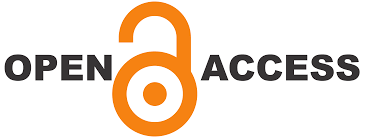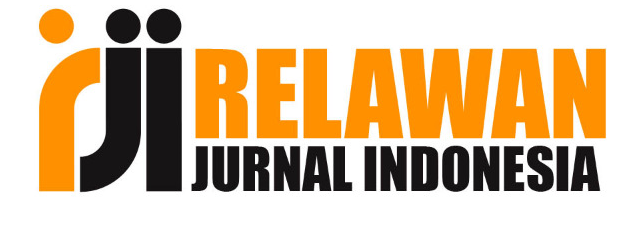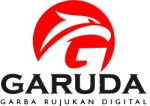Mengejar Karir yang Berkelanjutan: Bagaimana Digital Leadership Mengembangkan Kemampuan Beradaptasi Karir dan Mengimbangi Orientasi Karir Protean
DOI:
https://doi.org/10.61179/ejba.v19i1.731Keywords:
Digital leadership, Career Sustainable, Protean Career, Happiness, Meaningful, HealthAbstract
Dalam era revolusi industry 4.0 yang menjadikan lingkungan kerja yang semakin intensif dan bergejolak, menuntut karyawan dan organisasi untuk mengenali dan menghargai berbagai cara yang mendukung karier yang dapat meningkatkan happiness, health, dan produktivitas. Career sustainable yang merupakan salah satu model karier kontemporer yang dapat menjadi pilihan individu karyawan atau organisasi. Tentu model karier ini tidak terlepas dari berbagai tantangan yang harus dihadapi. Peran pemimpin dalam konteks organisasi digital menjadi buffer untuk menghadapi tantangan tersebut. Tulisan ini menggunakan lensa teori Conservation of Resources (COR) untuk menjelaskan bahwa individu berusaha untuk memperoleh, mempertahankan, melindungi, dan mengembangkan hal-hal yang mereka hargai dan entitas yang bernilai yang disebut sebagai sumber daya, misalnya sumber daya pribadi, organisasi, terkait pekerjaan, dan terkait karier. Sumber daya career merupakan sumber daya terkait karier yang tertanam dalam diri individu yang diperlukan untuk menavigasi karier seseorang atau kompetensi karier. Sumber daya individu dapat diidentifikasikan sebagai rasa individu atas kemampuan mereka untuk mengendalikan dan mempengaruhi lingkungan, yang dapat digunakan untuk mencapai tujuan kariernya.
References
Agupugo, C. P., Ajayi, A. O., Salihu, O. S., & Barrie, I. (2024). Large scale utility solar installation in the USA: Environmental impact and job. Global Journal of Engineering and Technology Advances, 21(2), 023–034.
Argyropoulou, K., Mouratoglou, N., Antoniou, A. S., Mikedaki, K., & Charokopaki, A. (2020). Promoting career counselors’ sustainable career development through the group-based life construction dialogue intervention:“Constructing my future purposeful life.” Sustainability, 12(9), 3645.
Arntz, M., Ben Yahmed, S., & Berlingieri, F. (2020). Working from home and COVID-19: The chances and risks for gender gaps. Intereconomics, 55(6), 381–386.
Arthur, M. B., & Rousseau, D. M. (1996). The boundaryless career: A new employment principle for a new organizational era (D. M. R. Michael Bernard Arthur (ed.)). OXFORD – The University Press.
Ashforth, B. E., Schinoff, B. S., & Rogers, K. M. (2016). “I identify with her,” “I identify with him”: Unpacking the dynamics of personal identification in organizations. Academy of Management Review, 41(1), 28–60. https://doi.org/10.5465/amr.2014.0033
Attah, R. U., Matthew, B., Garba, P., Gil-ozoudeh, I., & Iwuanyanwu, O. (2024). Strategic frameworks for digital transformation across logistics and energy sectors?: Bridging technology with business strategy Strategic frameworks for digital transformation across logistics and energy sectors?: Bridging technology with business strategy. November. https://doi.org/10.53022/oarjst.2024.12.2.0142
Auvinen, E. (2023). Building Sustainable Careers?: Motivation to Lead as a Resource for Leaders. http://urn.fi/URN:ISBN:978-951-39-9715-1
Azharudeen, N. T., & Arulrajah, A. A. (2018). The relationships among emotional demand, job demand, emotional exhaustion and turnover intention. International Business Research, 11(10), 8–18.
Barthauer, L., Kaucher, P., Spurk, D., & Kauffeld, S. (2020). Burnout and career (un) sustainability: Looking into the Blackbox of burnout triggered career turnover intentions. Journal of Vocational Behavior, 117, 103334.
Baruch, Y., & Lavi-Steiner, O. (2015). The career impact of management education from an average-ranked university: Human capital perspective. Career Development International., 20(3), 218–237.
Bass, B. M. (1999). Two decades of research and development in transformational leadership. European Journal of Work and Organizational Psychology, 8(1), 9–32.
Bennett, N., & Lemoine, G. J. (2014). What a difference a word makes: Understanding threats to performance in a VUCA world. Business Horizons, 57(3), 311–317. https://doi.org/10.1016/j.bushor.2014.01.001
Cascio, W. F. (2020). Managing a Brittle, Anxious, Nonlinear, Incomprehensible World. Harvard Business Review.
Castro, M. R., Van der Heijden, B., & Henderson, E. L. (2020). Catalysts in career transitions: Academic researchers transitioning into sustainable careers in data science. Journal of Vocational Behavior, 122, 103479.
Chudzikowski, K. (2012). Career transitions and career success in the ‘new’career era. Journal of Vocational Behavior, 81(2), 298–306.
Crowley-Henry, M. (2007). The Protean Career: Exemplified by First World Foreign Residents in Western Europe? International Studies of Management & Organization, 37(3), 44–64. https://doi.org/10.2753/IMO0020-8825370302
De Vos, A., Van der Heijden, B. I. J. M., & Akkermans, J. (2020). Sustainable careers: Towards a conceptual model. Journal of Vocational Behavior, 117, #pagerange#. https://doi.org/10.1016/j.jvb.2018.06.011
Di Fabio, A. (2017). The psychology of sustainability and sustainable development for well-being in organizations. Frontiers in Psychology, 8(SEP), 1–7. https://doi.org/10.3389/fpsyg.2017.01534
Di Fabio, A., & Kenny, M. E. (2016). Promoting well-being: The contribution of emotional intelligence. Frontiers in Psychology, 7, 1182.
Djourova, N. P., Rodríguez Molina, I., Tordera Santamatilde, N., & Abate, G. (2020). Self-Efficacy and Resilience: Mediating Mechanisms in the Relationship Between the Transformational Leadership Dimensions and Well-Being. Journal of Leadership and Organizational Studies, 27(3), 256–270. https://doi.org/10.1177/1548051819849002
Graen, G. B., & Uhl-Bien, M. (1995). Relationship-based approach to leadership: Development of leader-member exchange (LMX) theory of leadership over 25 years: Applying a multi-level multi-domain perspective. The Leadership Quarterly, 6(2), 219–247.
Gubler, M., Arnold, J., & Coombs, C. (2014). Reassessing the protean career concept: Empirical findings, conceptual components, and measurement. The Boundaryless Career, 35, S23–S40.
Hall, D. T., Yip, J., & Doiron, K. (2017). Protean Careers at Work?: Self-Direction and Values Orientation in Psychological Success. Annual Review of Organizational Psychology and Organizational Behavior, 5(October), 129-156.
Hirschi, A. (2014). Hope as a resource for self-directed career management: Investigating mediating effects on proactive career behaviors and life and job satisfaction. Journal of Happiness Studies, 15, 1495–1512.
Hirschi, A., Jaensch, V. K., & Herrmann, A. (2017). Protean career orientation, vocational identity, and self-efficacy: An empirical clarification of their relationship. European Journal of Work and Organizational Psychology, 26(2), 208–220. https://doi.org/10.1080/1359432X.2016.1242481
Hobfoll, S. E. (2011). Conservation of resource caravans and engaged settings. Journal of Occupational and Organizational Psychology, 84(1), 116–122. https://doi.org/10.1111/j.2044-8325.2010.02016.x
Huhtala, M., Geurts, S., Mauno, S., & Feldt, T. (2021). Intensified job demands in healthcare and their consequences for employee well?being and patient satisfaction: A multilevel approach. Journal of Advanced Nursing, 77(9), 3718–3732.
Kiani, A., Liu, J., Ghani, U., & Popelnukha, A. (2020). Impact of future time perspective on entrepreneurial career intention for individual sustainable career development: The roles of learning orientation and entrepreneurial passion. Sustainability, 12(9), 3864.
Kirves, K., Kinnunen, U., De Cuyper, N., & Mäkikangas, A. (2014). Trajectories of perceived employability and their associations with well-being at work. Journal of Personnel Psychology.
Kubicek, B., Korunka, C., Paškvan, M., Prem, R., & Gerdenitsch, C. (2014). Changing working conditions at the onset of the twenty-first century: Facts from international datasets. The Impact of ICT on Quality of Working Life, 25–41.
LePine, J. A., Podsakoff, N. P., & LePine, M. A. (2005). A meta-analytic test of the challenge stressor–hindrance stressor framework: An explanation for inconsistent relationships among stressors and performance. Academy of Management Journal, 48(5), 764–775.
Li, H., Ngo, H. yue, & Cheung, F. (2019). Linking protean career orientation and career decidedness: The mediating role of career decision self-efficacy. Journal of Vocational Behavior, 115, 103322. https://doi.org/10.1016/j.jvb.2019.103322
Li, Y., Li, X., Chen, Q., & Xue, Y. (2020). Sustainable Career Development of Newly Hired Executives—A Dynamic Process Perspective. Sustainability, 12(8), 3175.
Macedo, D. P., & Marques, A. C. (2023). Is the energy transition ready for declining budgets in RD&D for fossil fuels? Evidence from a panel of European countries. Journal of Cleaner Production, 417(July). https://doi.org/10.1016/j.jclepro.2023.138102
Magnano, P., Santisi, G., Zammitti, A., Zarbo, R., & Nuovo, S. Di. (2019). Self-perceived employability and meaningful work: The mediating role of courage on quality of life. Sustainability (Switzerland), 11(3), 1–14. https://doi.org/10.3390/su11030764
Maslach, C., & Leiter, M. P. (2017). Understanding burnout: New models. In The handbook of stress and health: A guide to research and practice (pp. 36–56).
Maslach, C., Schaufeli, W. B., & Leiter, M. P. (2001). Job burnout. Annual Review of Psychology, 52(1), 397-422.
Mauno, S., Kubicek, B., Minkkinen, J., & Korunka. (2019). Antecedents of intensified job demands: evidence from Austria. Employee Relations: The International Journal, 41(4), 694–707.
McDonald, K. S., & Hite, L. M. (2018). Conceptualizing and creating sustainable careers. Human Resource Development Review, 17(4), 349–372.
Nimmi, P. M., Cabral, C., Thrasyvoulou, G., Mariani, M. G., & Petruzziello, G. (2024). The impact of protean career on career sustainability: Mediating effect of perceived employability. Australian Journal of Career Development, 33(2), 154–165. https://doi.org/10.1177/10384162241264192
Nimmi, P. M., Zakkariya, K. A., & Nezrin, R. (2020). Insight to Impact: The Effect of Protean Career Attitude on Employability Perceptions of IT Professionals. Colombo Business Journal, 11(1), 1. https://doi.org/10.4038/cbj.v11i1.55
Paškvan, M., & Kubicek, B. (2017). The intensification of work. In ob demands in a changing world of work: Impact on workers’ health and performance and implications for research and practice (pp. 25–43).
Peeters, E., Nelissen, J., De Cuyper, N., Forrier, A., Verbruggen, M., & De Witte, H. (2019). Employability capital: A conceptual framework tested through expert analysis. Journal of Career Development, 46(2), 79–93.
Peiró, J. M., Svicher, A., & Di Fabio, A. (2023). Innovative behaviors and eudaimonic well-being: The contribution of human capital sustainability leadership to sustainable career, decent work, decent lives, and healthy lives. Australian Journal of Career Development, 32(3), 215–224.
Schaufeli, W. B., & Bakker, A. B. (2004). Job demands, job resources, and their relationship with burnout and engagement: A multi-sample study. Journal of Organizational Behavior, 25(3), 293–315.
Schwab, K. (2024). The fourth industrial revolution. In Handbook of research on strategic leadership in the Fourth Industrial Revolution (pp. 29–34). https://doi.org/10.6017/ITAL.V40I1.13193
Seibert, S. E., Kraimer, M. L., & Crant, J. M. (2001). What Do Proactive People Do? A Longitudinal Model Linking Proactive Personality And Career Success. Personnel Psychology, 54(4), 845–874. https://doi.org/10.1111/j.1744-6570.2001.tb00234.x
Tomlinson, J., Baird, M., Berg, P., & Cooper, R. (2018). Flexible careers across the life course: Advancing theory, research and practice. Human Relations, 71(1), 4–22.
Wilhelm, F., & Hirschi, A. (2019). Career self-management as a key factor for career wellbeing. In Theory, research and dynamics of career wellbeing: Becoming fit for the future (pp. 117–137).
Downloads
Published
Issue
Section
License
Copyright (c) 2025 Levi Nilawati

This work is licensed under a Creative Commons Attribution 4.0 International License.















